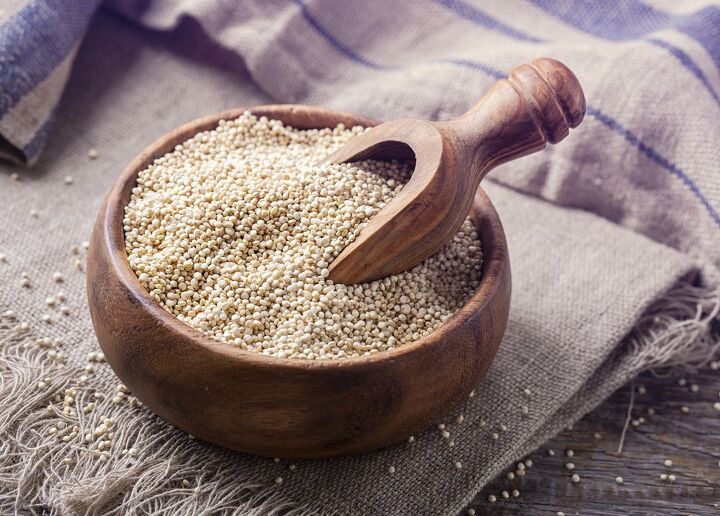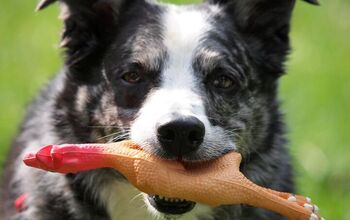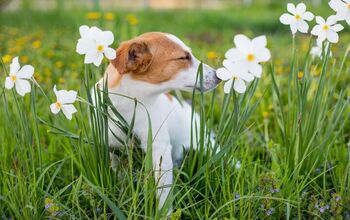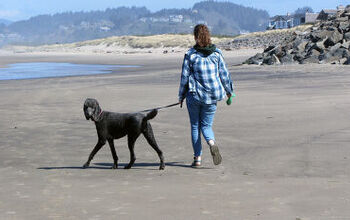5 Types of Seeds Your Dog Can Eat

If you’re into healthy eating and want your pet to enjoy this same positive lifestyle choice, try taking tiny steps. And when I say “tiny”, I mean start with healthy, nutrient-rich seeds. Now, before you begin adding this type of supplement to your pooch’s food bowl, there are some things you need to consider.
While seeds are chock-full of nutrients, some can be a little higher in fats and may trigger a bout of pancreatitis in breeds (such as Mini Schnauzers, Cocker Spaniels, and terriers), that are naturally prone to this type of ailment. So, introduce them slowly and monitor your pooch’s digestive reaction to ensure he’s tolerating this change in diet. Particularly if you decide to augment his foods with high-fat sunflower or pumpkin seeds.
And to gain maximum benefits, most seeds must be raw (not roasted), be unsalted, and typically ground down in order to fully release their nutritional values.
Ready to check out some of the best seed supplements?
- Sesame Seeds
This tiny seed not only adds a special, nut-like flavor to your dog’s meals, it packs a pretty impressive shot of protein, calcium, and Omega-6 essential fatty acids for optimal joint health. Best of all, it contains a higher dose of Vitamin E than any other plant-based food – ideal for skin and liver health. Dosage: ¼ teaspoon per day for dogs up to 50 pounds. ½ teaspoon for dogs over 50 pounds.
- Chia Seeds
You might be surprised at the number of health benefits your dog will enjoy when this seed is sprinkled across his food. Loaded with Omega-3 essential fatty acids, its an excellent source of zinc, protein, phosphorous (for optimal kidney function) and antioxidants. In fact, it’s a known boost to immune-systems, so is a great additive for older or ailing pooches. Dosage: ¼ teaspoon per day for every 10 pounds of doggy weight.
- Flaxseeds
This high-fiber seed delivers its maximum nutrient efficiency when it’s ground fine and sprinkled into your pooch’s dinner – or baked into his favorite treats. Not only is Flax rich in Omega-3 essential fatty acids, magnesium but also Vitamin B1 (AKA Thiamine) which helps with brain and high energy organ function. Note – the high oil content means this seed requires refrigeration. Dosage: ¼ teaspoon per day for dogs up to 50 pounds. ½ teaspoon for dogs over 50 pounds.
- Quinoa
Because of its superior nutritional benefits, this tiny gluten-free seed is actually used in a number of top-quality brands of dog foods as a replacement for the usual grains (corn and wheat). It’s a great source of essential fatty acids and antioxidants that help fight inflammation and reduce free radicals that can cause certain diseases. Now, because it is high in natural oxalates, dogs that suffer from arthritis or kidney disease, should not be fed quinoa. And quinoa is one of the few seeds that must be cooked prior to adding it to your pooch’s diet. Dosage: ¼ teaspoon per day for every 10 pounds of doggy weight.
- Hemp Seeds
No, your dog won’t get stoned from hemp seeds. In fact, this easily digested seed is high in proteins plus Omega-3 and -6 essential fatty acids that help reduce joint pain in older dogs. Best of all, because of its high content of amino acids it improves blood circulation and heart health. And for an added plus, the linoleic acid makes for a shinier coat and less shedding. Dosage: ½ tsp per day for smaller dogs, up to 1 tsp per day for dogs over 50 pounds.

Sharing space with three seriously judgy Schnoodles and a feline who prefers to be left alone. #LivingMyBestLife
More by Mary Simpson























